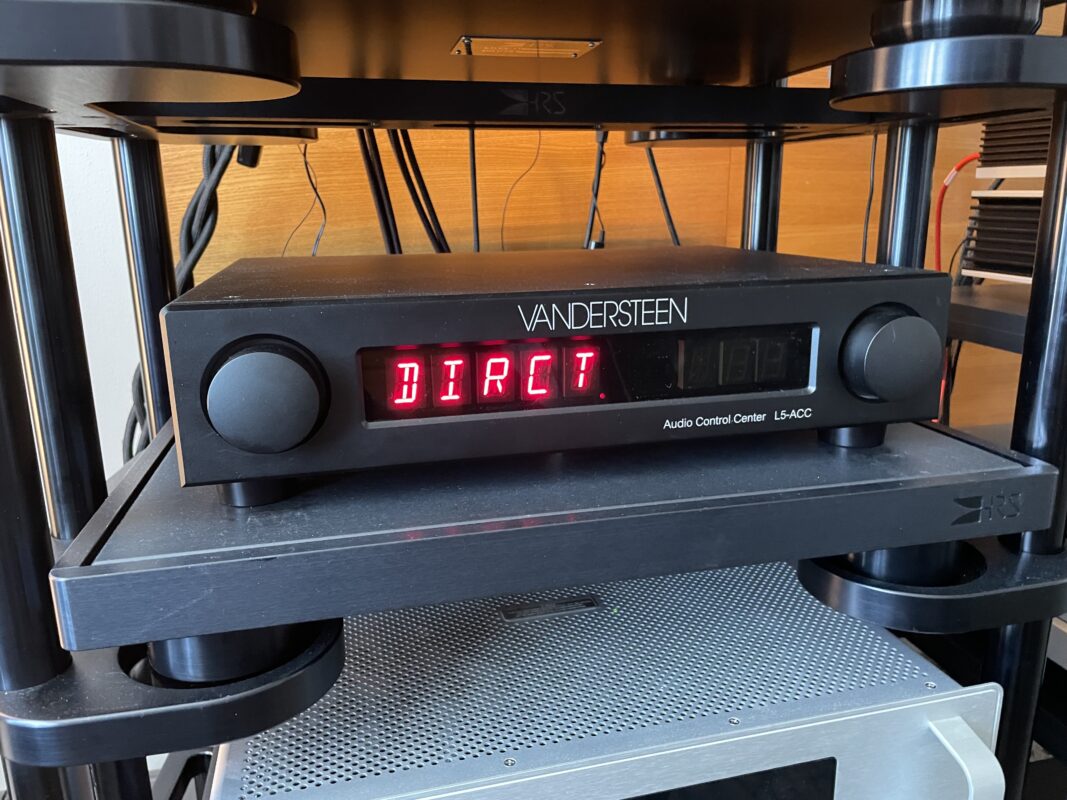April 24

A preamplifier from Vandersteen? After 47 years building loudspeakers, why would Vandersteen make a preamplifier? The answer is that this is the preamp that Richard Vandersteen wants for his own system but isn’t available on the market. So, he created a preamp with several unique features and thought other listeners would want those features as well. The result is the L5-ACC, with “ACC” an initialism for “Audio Control Center.” The L5-ACC offers features not normally found on a preamp—features that are implemented in a novel way.
First are the bass and treble controls, realized not by switching in an equalization circuit but by using relays to add circuitry in parallel to the signal path. The result is tone controls with no sonic penalty. Sensibly, the controls have limited range—just enough to nudge a system or a particular recording in the right tonal direction. The bass control offers boost of +2dB, +4dB, +6dB, and cut of –3dB, and the treble control offers +1dB, +2dB, –1dB and –2dB adjustment, all in discrete steps rather than being continuously variable as with most tone controls. Any combination of settings can be stored in one of three presets, accessible on the remote control. The presets are handy for creating your own loudness-compensation circuit for low-level listening or adding a bit of bass boost to some older records, for examples.
A feature not found on modern preamps, but that Vandersteen thought useful, is a mono-blend circuit to reduce the “ping-pong” mixes prevalent in the early days of stereo recording—drums 100% in the right channel and the lead instrument 100% in the left channel, for example The mono-blend circuit reduces that exaggerated stereo effect and is selectable on the L5-ACC remote control in four steps including full mono. Finally, the L5-ACC incorporates a matrix that takes out-of-phase information from each channel, inverts it, and mixes it back in on the theory that this out-of-phase information restores the natural ambience encoded in the recordings. It’s like the “Hafler Hookup” popular in the 1970s but without rear speakers. The L5-ACC will begin shipping in Q4 this year with a price of $15,000. Vandersteen created a great-sounding room with the L5-ACC, Audio Research electronics, AudioQuest cables and power conditioning, and his own excellent Kento Carbon loudspeakers. Come to think of it, I’ve never heard bad sound in a Vandersteen show demo.
Excerpt for the full report found here: https://www.theabsolutesound.com/articles/axpona-2024-robert-harley-on-electronics/